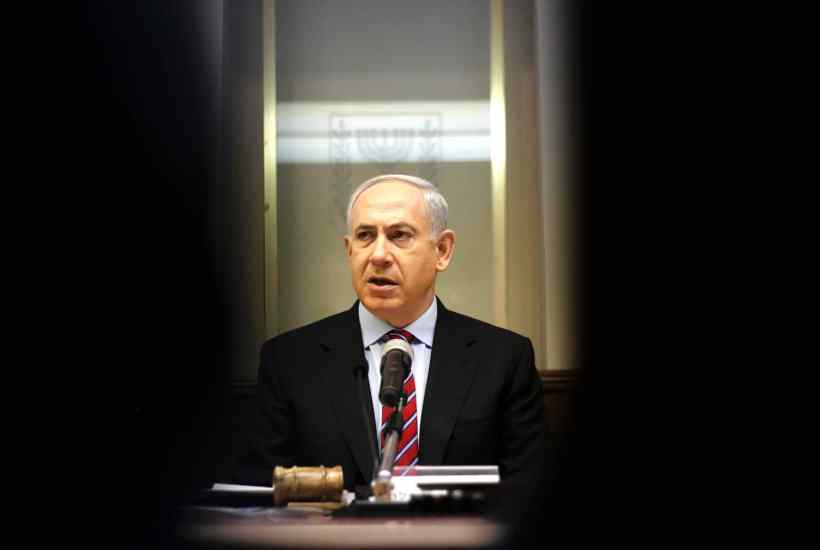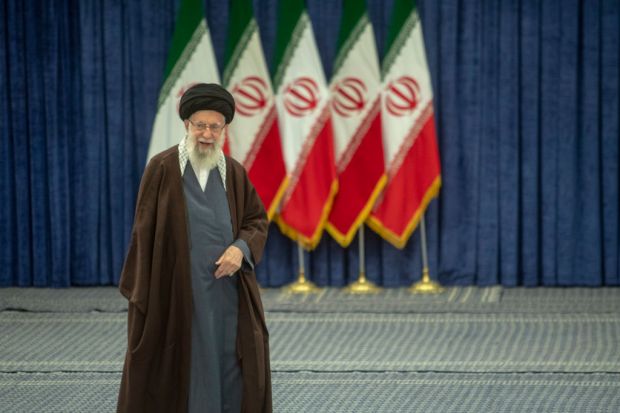Here we go again. On Monday, Naftali Bennett, Israel’s Prime Minister, announced that he would bring a bill to dissolve the Knesset and trigger yet another election.
After a seemingly endless procession of elections, Bennett’s rainbow coalition was a brief respite from constant campaigning that exhausted the populace and bankrupted the political parties. Comprising factions of the right, left and centre, and even including the Islamist Ra’am party, the diverse government agreed to park controversial issues like the Israel-Palestinian conflict. Instead, it’s been focused on policies that its members could agree on, like pandemic management, Iran and economic reforms.
From the very beginning, things were shaky. With just 61 members in Israel’s 120-seat Knesset, the government had next to no room to manoeuvre. Managing these tensions was the job of coalition chairperson Idit Silman from Bennett’s Yemina party. So it was ironic when Silman herself defected in April, causing a 60-60 stalemate in the Knesset with no majority to pass bills but not enough votes to dissolve itself and call a new election.
Since then, the government has been living on borrowed time. Every coalition member became a king, making increasingly-incompatible demands as the price for their votes. Meanwhile, the country faced the deadliest wave of Palestinian terrorist attacks for more than a decade.
The opposition, led by Benjamin Netanyahu, vowed to oppose every measure and vote against every proposal from the government, however beneficial. A senior Likud Knesset member was recorded saying she’d happily vote down bills for disabled people, rape victims and domestic abuse as long as it toppled the government.
The point of no return was a technical vote to renew civilian law over Israeli settlements in the West Bank. Israelis faced the bizarre spectacle of Arab party leader (and coalition member) Mansour Abbas voting in favour of settlements, while Likud proudly and loudly voted against them. One nay vote from a coalition member led to the measure falling, setting up a future legal quagmire.
Even until the end, Bennett and his main partner, foreign minister Yair Lapid of the centrist Yesh Atid party, tried to keep the government together. Last night, with rumours of more defections coming, they admitted defeat. When Bennett and Lapid formed this rainbow coalition, they agreed to share the premiership, and Bennett is honouring this deal. Lapid will most likely become the new prime minister within days and will stay in office until a new government is formed after the election — several months at least. Prime minister Lapid will host Joe Biden on his visit to Israel in July.
Naftali Bennett never seemed quite willing to assert his authority as prime minister. His own party was one of the smallest in the coalition. The PM rotation agreement with Lapid meant that even in the best-case scenario, he would only have been in office for a relatively short time. He never moved into the symbolic prime minister’s residence in Jerusalem, instead staying with his family in a Tel Aviv suburb so as not to disrupt their schooling. Bennett always seemed like a man expecting his term to end.
His achievements are real, though. The Bennett-Lapid government’s quiet diplomacy with the Biden administration on the Iran nuclear programme seems to have been more successful than Netanyahu’s bombastic feuds with Barack Obama. Israel’s rapprochement with Turkey is already paying off, with the two countries foiling a major Iranian terror plot.
Ultimately, this coalition was born because of one man: Benjamin Netanyahu. Several of the right-wing and centrist parties in the current Knesset would happily form a new coalition with Likud at the head tomorrow, but with one condition: the prime minister is anyone else other than Netanyahu.
On trial for corruption, Netanyahu has maintained a stranglehold over the Likud party and has blocked any attempts to oust him. Despite being 73 years old at the next election, and having to appear in court, he shows no signs of wanting to retire. His triumphant return to the premiership, 26 years after his first term, looks at least as likely as not.
Current polls put Netanyahu’s Likud and his allied religious nationalist parties just shy of a majority, and no other obvious coalitions looks feasible. Of course, a lot can change in the months before the elections, as new parties spring up and old parties merge. But as Israelis prepare for their fifth election within four years, they’re already wondering if it might take a sixth or seventh vote until there’s a stable government.
Got something to add? Join the discussion and comment below.
Get 10 issues for just $10
Subscribe to The Spectator Australia today for the next 10 magazine issues, plus full online access, for just $10.




















Comments
Don't miss out
Join the conversation with other Spectator Australia readers. Subscribe to leave a comment.
SUBSCRIBEAlready a subscriber? Log in